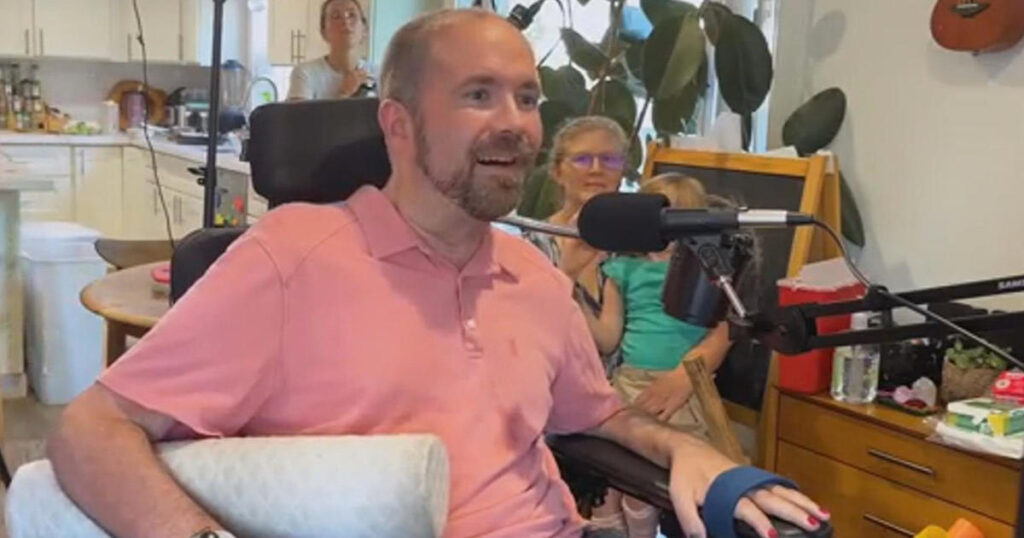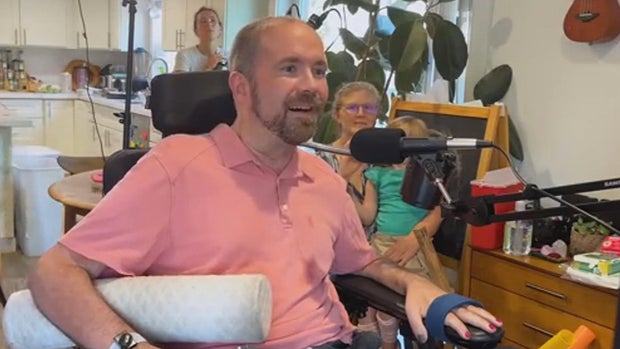
BOSTON – Using artificial intelligence, doctors have found a way to give people who lost their voice to ALS the ability to speak again. This new technology is actually translating brain activity into speech.
« Not being able to communicate is so frustrating and demoralizing, » said Casey Harrell, a study participant. « It is like you are trapped. »
In a breakthrough clinical trial called « BrainGate 2 », a research team directed by Dr. Leigh Hochberg at Massachusetts General Hospital set out to give participants like Casey a voice again.
« For people with ALS, who are losing the ability to move, and the ability to speak, one of the most devastating aspects of this disease is the loss of communication, » said Dr. Hochberg. « Part of what we all want to achieve is to restore that communication. »
Surgically implanted devices
The team surgically implanted a tiny device smaller than an M&M directly onto Casey’s brain.
« We placed four of them on the top of the brain and a part of the brain that’s really important for the control of speech, » Dr. Hochberg said. « That means that were able to take the brain activity as he was speaking and turn that brain activity into words on a computer screen. »
In mere moments, a computer decoded Casey’s thoughts. First into words, then into sentences and meaningful phrases and it didn’t end there. Researchers took it a step further.
« We had used an AI approach to taking his pre-ALS voice, » Dr. Hochberg said, « and allowing that voice to be the one that was heard through the computer. »
UC Davis
« Seeing his and his family’s emotional reaction to that working right out of the gate was really an important moment for all of us, » Dr. Hochberg said. « In fact, for the research team that was there, everybody had to pause after seeing it work right at the beginning and kind of gather themselves again for a moment to continue the rest of the day. »
Doctors anticipate that the breakthrough could not only bring back someone’s ability to speak, but the chance to walk again one day.
« I meet people who yesterday were able to walk and speak without any difficulty and suddenly have lost the ability to move or have lost the ability to speak, » Dr. Hochberg said. « And as a physician, I want nothing more than to be able to say to that person, ‘I’m sorry that this happened, but we have a technology. And tomorrow, you’re going to be able to move again, you’re going to be able to speak again.' »
Restoring hope for ALS patients
For Casey, it’s restoring hope that was stolen from him by a disease. « I hope that we are at a time when everyone who is like me, have the same opportunity as I do, to have a device like this that will help them communicate, » Casey said.
Dr. Hochberg says they are currently enrolling new participants in the BrainGate clinical trials. Right now, there are five people in the trial.


